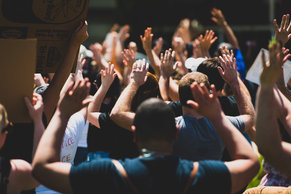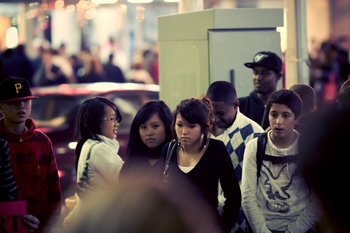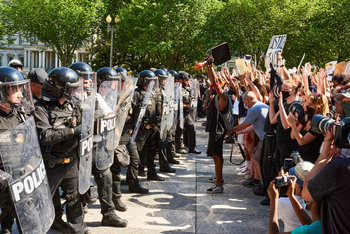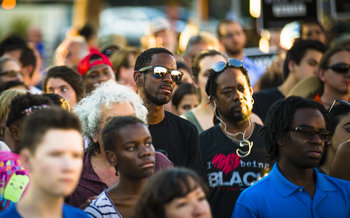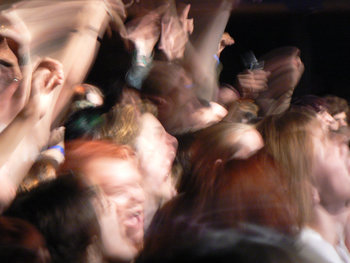
Authority
Authority such as the authority of a teacher over students. For example, if a teacher asks a student to do them a favor by going to a nearby restaurant to pick up the teacher's lunch, the student may feel compelled by their authority to comply. As such, this may not be a fair request such that it is unethical or questionable. If power were more balanced, such as a teacher-to-teacher situation such a request becomes reasonable.Legal Resources
Legal resources such as a technology company that has a team of talented lawyers draw up user and customer contracts. In this case, the user or consumer may have no capacity to understand the agreement at any depth. Likewise, the consumer isn't in a position to negotiate the agreement and may have few choices whereby legal agreements may be similar or there may be a monopoly for a particular product or service with no choice whatsoever. In this case, it is questionable for the more powerful side to place aggressive terms in the agreement. If power were more balanced, such as agreements between large firms, contracts can be viewed as truly accepted by both sides.Partners
Small partners of larger firms have a power imbalance such that they may have little leverage to negotiate. For example, a freelancer who works according to contracts, processes, rules and algorithms dictated by a large firm. In this case the freelancer is a "partner" but may have no power over such agreements other than to accept or be unemployed. As such, placing excessive demands in these agreements may be questionable. Where a partner is a similar size, agreements can be viewed as negotiated and accepted by parties that are both empowered.Overwhelming Power
Overwhelming power such as the power of a state over the individual whereby a nation has military, police, administrative and legal powers that are significant. This can be balanced with a system of rights and freedoms whereby the individual can use the state itself to defend oneself from the state. For example, if a representative of a government acts unreasonably towards you, you may be able to seek justice from a legal system or oversight body. Where this doesn't exist -- unprofessional or unethical behavior will go unchallenged.| Overview: Power Imbalance | ||
Type | ||
Definition | An environment, relationship or interaction where one party has far more social power than the other. | |
Related Concepts | ||

